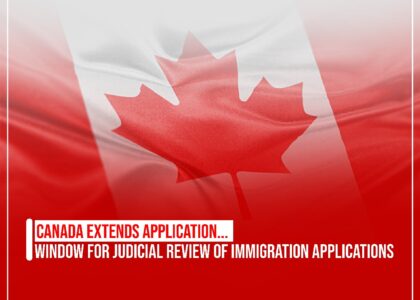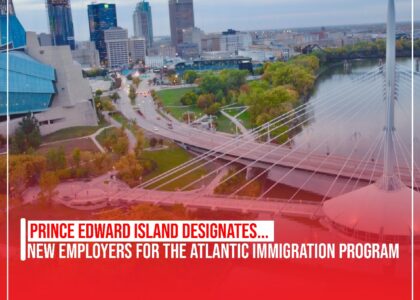As 2025 approaches, the European Union (EU) is set to roll out several pivotal changes that will reshape travel, residence permits, and visa systems across the Europe region. From cutting-edge border control systems to expanded Schengen membership, new tourist taxes, and stricter residence rules, these updates will impact both visitors and residents. Here’s a detailed look at what to expect and how to prepare for a seamless experience.
1. Advanced Border Systems: EES and ETIAS
Two major systems—the Entry/Exit System (EES) and the European Travel Information and Authorization System (ETIAS)—will revolutionize border control processes across the EU in 2025.
Entry/Exit System (EES)
- Designed to replace manual passport stamping, the EES will automate the process of registering travellers at EU borders.
- It will apply to all non-EU travellers, regardless of whether they require a visa.
- Travellers need not take any pre-trip action; the system operates automatically at entry and exit points.
European Travel Information and Authorization System (ETIAS)
- ETIAS is a pre-screening visa waiver system for travellers from over 60 visa-exempt countries.
- Visitors must apply online and receive authorization before entering the EU.
- The system aims to enhance border security while ensuring smoother entry for eligible travellers.
Timeline: The EES will launch first, followed by the rollout of ETIAS a few months later. While exact dates remain unconfirmed, these systems are expected to be live in 2025.
Also Read: Canada’s Updated Work Visa Rules for December 2024: What You Need to Know
2. Bulgaria and Romania Join the Schengen Zone
On January 1, 2025, Bulgaria and Romania will become full members of the Schengen Area, a move that eliminates internal border controls for land crossings.
- Residents and travellers can move freely between Bulgaria, Romania, and other Schengen countries without border checks.
- This expansion facilitates seamless travel and enhances connectivity across Eastern and Western Europe.
For tourists and residents, this marks a significant step in unifying the Schengen travel experience.
3. Golden Visa Program Updates
Changes to Golden Visa programs in Greece and Spain will affect foreign investors looking for residency opportunities.
Greece Expands Its Golden Visa Pathways
Greece will introduce a startup-focused investment option, allowing individuals to gain residency through investments in eligible businesses. Key requirements include:
- A minimum investment of €250,000 in approved startups.
- A maximum equity stake of 33%.
- The creation of two jobs within the first year.
- Maintaining the workforce for at least five years.
Spain’s Golden Visa Program Faces Uncertainty
Spain’s plans to phase out property-based Golden Visas remain uncertain. While the government initially aimed to discontinue this pathway, the Senate’s veto has delayed the decision. Investors should monitor developments closely to plan accordingly.
4. New and Increased Tourist Taxes Across Europe
To combat overtourism and fund infrastructure improvements, several European countries will implement or raise tourist taxes in 2025.
Portugal
- Madeira’s €3 trail fee will expand to cover all 30 hiking routes, making it mandatory for tourists accessing these areas.
- The historic city of Évora will introduce a new tourist tax to enhance tourism infrastructure (exact details are pending).
Italy
- Venice will increase its tourist tax for last-minute visitors, targeting those arriving on select days.
- The current €5 fee will double to €10 starting April 2025 to manage crowds and preserve the city’s heritage.
Greece
- Greece will hike its tourist taxes, particularly during peak seasons:
- Daily charges will increase to €2 for budget accommodations.
- During high season, luxury stays will incur taxes of up to €8 per night.
These changes aim to strike a balance between sustainable tourism and improving visitor experiences across popular European destinations.
5. Stricter Residence Permit Rules in France
In 2025, France will introduce new language proficiency requirements for residence permits. The changes focus on improving integration and fostering community engagement.
- Applicants for multi-year permits will need to demonstrate A2-level French proficiency.
- Those seeking 10-year residence permits must attain B1-level language skills.
Although the exact implementation date remains unconfirmed, foreign residents planning long-term stays in France should start preparing to meet these requirements.
6. UK Travel Authorization for EU Citizens: ETA System
From April 2, 2025, EU citizens traveling to the UK for short visits will need to secure an Electronic Travel Authorization (ETA).
- The ETA costs €11 per application.
- It remains valid for two years, allowing multiple trips of up to 60 days each.
- Applications open on March 5, 2025, and apply to all travellers, including infants.
This system aligns with the UK’s efforts to enhance border security while maintaining easy access for short-term visitors.
Conclusion: Prepare for Europe’s Travel Changes in 2025
The European Union’s upcoming changes reflect its commitment to improving security, tourism management, and integration policies. Whether you’re a traveller exploring Europe, a business investor, or a resident, staying informed about these updates is key to ensuring a smooth and hassle-free experience in 2025.
Here’s a quick recap:
- EES and ETIAS will modernize border controls, requiring advance authorization for visa-exempt travellers.
- Bulgaria and Romania will fully join the Schengen Area, enhancing free movement.
- Golden Visa programs in Greece and Spain will undergo updates, with Greece introducing a startup-focused option.
- Tourist taxes will increase across destinations like Portugal, Italy, and Greece to manage overtourism.
- France will implement stricter residence permit language requirements.
- UK’s ETA system will require authorization for EU citizens visiting the UK for short stays.
As these policies roll out, planning ahead and staying updated will ensure your trip or relocation in Europe is stress-free and successful. If you’re preparing to travel, invest, or settle in Europe, now is the perfect time to start planning.





